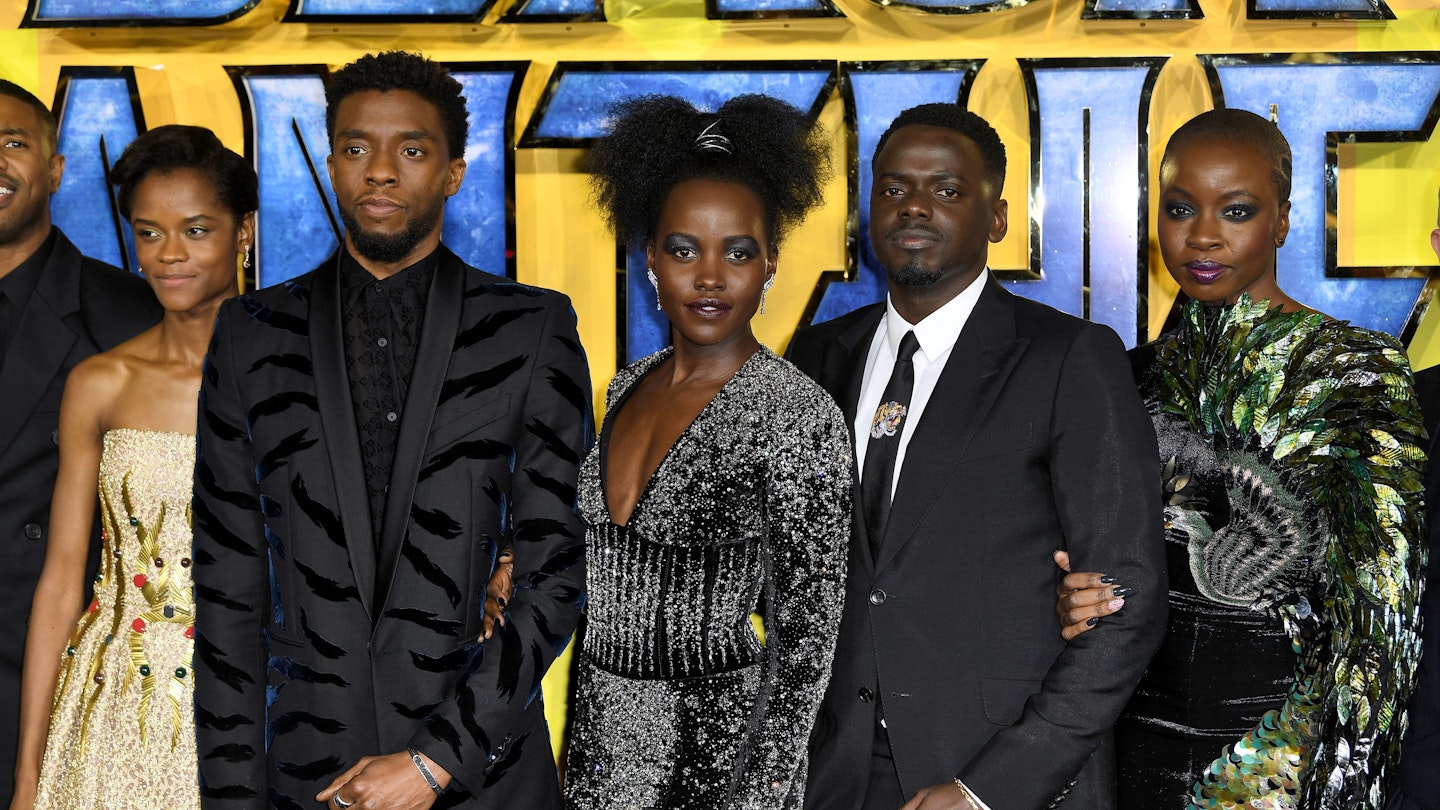Black Panther is remarkable for a number of reasons. It’s the first film in the Marvel Cinematic Universe with a black lead and indeed an almost entirely black cast, a move forward towards wider representation in blockbusters that’s long overdue. But we all knew that this (brilliantly made) film was going to deliver in that respect. The surprise is that, within minutes, it becomes obvious that the secret ingredient powering Black Panther is the women.
A little bit of background first. The character of Black Panther first appeared on the big screen in 2016’s Captain America: Civil War, where Chadwick Boseman landed the role of T’Challa / Black Panther. The character visited the UN with his father T’Chaka (South African actor John Kani), king of the secretive African nation of Wakanda, but T’Chaka was tragically killed in a bomb attack and T’Challa left to assume his role. So this new film, directed by Creed’s Ryan Coogler, sees T’Challa coming home to claim his father’s throne, and finding a whole world of new problems as he does so. Wakanda is secretive, after all, because it holds almost all the globe’s supply of the precious metal ‘vibranium’, an ultra-powerful tool that has made Wakanda the most technically advanced nation on Earth and the one place in Africa that was never successfully targeted by colonising Westerners. But the dilemma, as Wakanda takes its first steps onto the world stage, is whether its new king should reveal the country’s true power to the world.
Oh, and its king is also a superhero, with a vibranium suit and his own super-powers granted after drinking a rare local herb. This is, after all, a comic-book movie. But what you can’t help notice is that the women around T’Challa don’t seem to really need his Black Panther at all – and they’re fighting without the benefit of either super-powers or suit.
That’s because, heading up his all-female bodyguards is Danai Gurira’s General Okoye. We meet her piloting his ship and saving her boss in one of his less strategically-thoughtful moments, gently teasing him about his love life and casually taking charge when necessary. As the film progresses, you’re going to develop a massive girl crush on Okoye. Don’t fight it; this is entirely normal. She is powerful, she is absolutely certain of her own identity and she makes no apologies to anyone, ever. She’s so inspirational it’s intoxicating. Oh, and she’s romantically involved with a guy called W’Kadi, played by Daniel Kaluuya in one of film history’s great cloaks.
The rest of those royal bodyguards, known as the Dora Milaje, are almost as strong, as beautiful and as sure of themselves as Okoye. In the comics, the group are meant to double up as bodyguards and as a marriage pool of potential wives, drawn from the leading families of Wakanda, but that secondary role is completely cast aside by the film, and it’s all the better for it. Seeing them en masse, whether they’re dancing or fighting, is a terrifying and exhilarating sight.
Then there is Lupita Nyong’o’s Nakia, a Wakanda spy who’s been out trying to offer aid in the wider world. She’s T’Challa’s ex, someone who left him because she was unwilling to stay safely home when there were people in need of help beyond Wakanda’s borders. She’s passionate, more than a little hot-headed and unyielding in her beliefs. She’ll have you volunteering at the nearest charity within hours of leaving the cinema.
Angela Bassett plays T’Challa’s mother, exuding the kind of moral authority you see in almost all her roles, but the real final stand-out in the royal family is a 16-year-old called Shuri. Imagine, for a moment, if Robert Downey Jr’s Tony Stark was crossed with James Bond’s Q, and the resulting genius inventor was your baby sister. That is Shuri. She’s casually brilliant, impishly funny and quick to puncture any trace of pomposity in her big brother T’Challa. Little kids are going to worship her, because they will sense (rightly) that she’d invite them in to tour her lab and go skateboarding if they ever met her for real.
These are characters with enough life, courage and spark to inspire anyone, of any skin colour, but the fact that they are women of colour, black women, is not just a detail. Black women have historically been hugely underrepresented onscreen, especially in the kind of authoritative, formidable roles that these women embody, and it’s about time that Hollywood began to set that imbalance right. Behind the scenes, things are changing too. Marvel hired Coogler, an African American, to direct this film, and he brought in a female cinematographer, Rachel Morrison (who recently became the first woman ever to be nominated for an Oscar for Best Cinematography, for her work on Mudbound) and two women of colour as his production designer and costume designer, Hannah Beachler and Ruth E. Carter respectively. This film is an extraordinary showcase for the whole crew, and if there is even a scrap of justice in the world they’ll be given their choice of projects from now on.
So Black Panther, and the women around him, is a genuinely important step forward in this world. This film gives young black kids a new frame of reference for the possibilities of the future; these characters offer people who rarely see people who look like them onscreen the chance to see themselves as superheroes; they remind those of us who are so white we glow in the dark that we’re not the only people with stories worth telling. This is not just the same old superhero story in a different-coloured suit; it’s a superhero who will, in however small a way, change the world.
